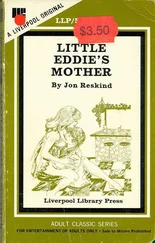Constance’s eyes were older, but held the same power as Gail’s. She found Gail’s gaze and held it.
My husband is a drunk. One of your brothers is in Vietnam, another is a junkie, and I don’t know where the third is. Probably dead. I lost a child, your sister, when she was two. You are my youngest child. You are all I have.
Gail nearly faltered.
“Mom, I…”
“Yes, Gail?”
She smelled the soup on her mother’s breath, mixed with cigarettes. Another wave of nausea hit her. She found a reserve of strength somewhere.
“Do you need help getting up the stairs?”
Constance didn’t answer. She walked inside and closed the door behind her.
* * *
Three weeks pass. They haven’t spoken. No calls. No visits. Two nights before the move, her father calls.
“Everything all right, Goodness?”
“Everything’s great, Dad.”
“We haven’t seen you. Everything all right?”
“Grand.”
“Okay then. Maybe I’ll see you Saturday before mass?”
She hadn’t told him.
“Sure, Dad. See you Saturday.”
If she had, he would have asked Gail to meet him at Kelly’s or Leggett’s or whatever shit hole he was still welcome in. He would have tapped the stool beside him and picked a quarter from his pile of change on the bar. A smile. Always charming, never belligerent. “Feckless,” that’s what her mother said, a “feckless man.” Feckless, like it was the worst thing someone could be.
And maybe it was.
“Okay, Goodness,” he would have said, “we’ll spin this twenty-five-cent piece here and if it comes up heads, you leave for that godforsaken place. But if it’s tails, you stay here, among the good Christian souls of Bay Ridge.”
Because that’s what he did when she was a kid, whenever Gail was sent to fetch him at this or that saloon.
“Okay, Goodness, heads we leave. Tails, we stay for one more.”
And then he’d spin it. It would take a few tries sometimes, but then he’d send it roaring and it would shoot down the bar, ricochet off the mug of some startled inebriate, fly off the wood, and come to rest in some dark patch of the floor.
“Go look, Gail, which is it?”
She would lean down, her back blocking his view of her inspection.
“It’s tails, Daddy.”
“’Course it is.”
Then he’d push his empty mug across the bar for a refill. He’d hand Gail a Coke in a small glass bottle. She lied because it was better to sit there with him happy than to walk home with him sullen. Better to put off the shouting for as long as possible. Better to get a Coke than not get a Coke. So it was always tails until her mother got wise and started sending her brother Tom instead of Gail. Tom was simple. He reported the results of the coin flip honestly, without consideration for what might be best for himself or his siblings.
Anyway, that’s how Gail feels in their new house, like one of her father’s flickering quarters come to rest in a hidden corner of the booze-soaked wooden floor: spun in Bay Ridge and rotated right over the Verrazano Bridge and come to rest in this forgotten place, this fifth of five boroughs.
She can’t get comfortable, has never lived in a house before. Takes some getting used to, being in a place with more rooms than people. Their old apartment was tiny, just a kitchenette with a bedroom barely large enough for the bed. They lived there for three years, saving every penny so they could afford the down payment on a house. This house. Her house.
Her house. Doesn’t feel that way. Every wall is covered in hideous wallpaper: garish yellows, greens, and oranges. Nicotine stains cover the ceilings in the bedrooms and bathrooms; the old couple who lived here must have smoked themselves into the grave. Every day, she smells the ghosts of cigarettes smoked long ago in a new spot: in the cabinet next to the fridge, at the top of the stairs, even in the emptied-out shed in the backyard. Whenever she catches the scent, she thinks of blue smoke drifting out from between her mother’s brown teeth and her stomach churns.
Michael says he can’t smell anything, that she’s imagining things. He doesn’t understand, couldn’t understand. She can smell the brown mustard he’d smeared on the sandwich he’d eaten for lunch. She can smell the can of Schaefer beer Mr. Greeley, their new next-door neighbor, drank before he walked over to welcome them to the block. She can smell the chicken pot pie he’d had with the Schaefer, the Ivory soap he cleans himself with.
The nose of a pregnant woman is a wondrous curse.
Pregnant. Another thing she doesn’t feel. Well, most of the time. An occasional dab of nausea, precipitated by nothing at all. The supercharged sense of smell. And the other thing. But that’s it. Only in the last few days has she noticed a change in her stomach; the gaze of her belly button has drifted up, its bottom half pulled out ever so slightly by a nascent bulge.
The pregnancy. It is the reason for the house, its expedited purchase, the loan from Michael’s parents, the awful dinner with Constance, the silent walk home, the disorienting move.
She goes days without seeing a soul. No one to talk to. She draws stares at the market. Tight smiles that don’t linger. She can almost hear slack returning to cheeks when her back turns.
The house is cold and creaking. She stays in the kitchen with the occasional dash to the toilet. The phone sits in its cradle, no hint of agitation. In Bay Ridge, she had her friends and her job. Waiting tables wasn’t glamorous, but it passed the time, kept a few coins in her pocket. Michael doesn’t want her to work. He wants her to rest, to get the house ready. She can’t rest and she can’t ready the house either. There’s too much to do; it overwhelms her. So she sits and she looks out the window or reads a book, and when Michael comes home every day, he looks around at his unchanged home a little confused but says nothing.
She looks out at the trees; their black, barren limbs sway menacingly at dusk, threatening to choke the street itself. A few hundred feet away, an empty lot stands rife with them, foreboding and defiant. The whole place makes her long for the dense certainty of concrete.
Michael is always at work, either at the firehouse or with his father, making a few extra bucks, putting a dent in the loan. His father owns a shop: part butcher, part deli. Enzo’s Italian Delicacies. They make their own sausages, their own soppressata and fresh mozzarella. When Michael comes home from the store with a grocery bag full of food, Gail makes him shower, a quick rinse, but it does no good; she can still smell the meat and blood on him. He cooks and pleasant aromas — garlic in olive oil, the fry of onions, fennel, and pork sausage — fill the house, mask the stink of sinew and tendon on him. She watches him cook and feels useless.
He is excited.
“I bet it’s a boy.”
“Maybe.”
“It’s a boy. I can tell.”
“How?”
“Girls take their mother’s looks.”
“So?”
“You still look beautiful.”
They go straight upstairs, dinner unfinished, because when she isn’t sick to her stomach, she wants Michael desperately. This is the other thing besides the nausea and the nose. She thinks of little else. And when he isn’t around, she pretends that he is and touches herself, gently but still. She worries that something is wrong with her. He worries that they might hurt the baby, but the doctor assures her that sex is perfectly safe.
What about being so horny that you can barely read? Is that safe too? She doesn’t ask these questions.
When they finish, she cries. The hormones are fiends: happy, sad, feisty, horny, withdrawn, hopeless, angry. All in the space of thirty minutes. Ping-ponging from one to the next with no discernible pattern. Michael tries to comfort her, asks her what’s wrong.
Читать дальше












